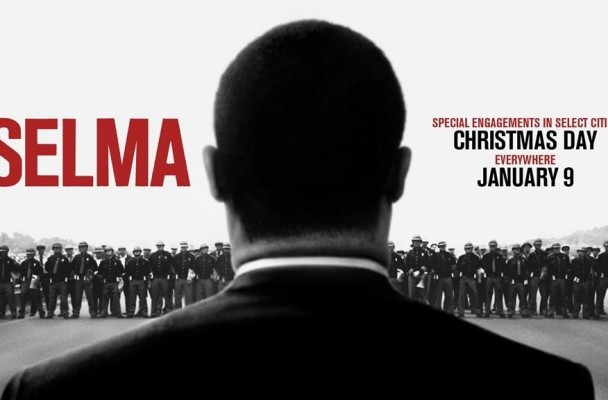‘Selma’ educates about past and brings hope to future

By Mayeesa Mitchell, Staff Writer //
It was a Sunday afternoon in a North Carolina theater filled mostly with Caucasians. Still, it was the few older African-Americans in the audience who responded to David Oyelowo’s rousing speeches the way they would respond to that of a Baptist minister — the way they would respond to Rev. Dr. Martin Luther King Jr.
Despite the varied responses, we were all watching “Selma,” a film centered around the 1965 marches from Selma to Montgomery, Alabama led by King and the Southern Christian Leadership Conference in efforts to change the laws the made it difficult for African-Americans to exercise their right to vote.
Silently, I agreed with the few who had been thrust back in time due to the combined efforts of director Ava DuVernay, screenwriter Paul Webb, and lead actor Davis Oyelowo who played Martin Luther King Jr.
The film was mesmerizing, painful, enlightening and encouraging all at once; a true testament to the films’ nomination in the Oscars’ Best Picture category.
It was DuVernay’s use of angles that truly set the film apart from others in this category. She was able to shoot the chaos of the police brutality in an organized manner that highlighted the inhumanity without overshadowing the resilience of the marchers. In other scenes, she shocked us with sudden silence that honored the lives lost when the most horrific occurrences were on the screen.
But she didn’t make this film a success on her own. Webb managed to capture the essence of King’s oratory leadership while also highlighting his humanistic characteristics without using any of Kings’ copy written words. A feat that seems impossible but was done with an impressive amount of finesse.
Although the moments of powerful, moving messages from the pulpit or speeches on the steps of the state capitol building were beautifully written, it was the quieter moments when King expressed his self-doubt to Minister Ralph Abernathy (Colman Domingo) and when King let his anger out on his wife Coretta (Carmen Ejogo) that unexpectedly made the legendarily iconic King relatable.
Undoubtedly, Webb’s screenplay wouldn’t have been quite as spectacular without an actor like David Oyelowo to bring the words to life. Although David is a British actor, it was clear that he took the time to study his character and embody King to the best of his ability. The way in which he carried himself with quiet dignity and an immutable presence could be felt through the screen. The power and emphasis he placed on his words clearly paralleled that of King, a man known for the influence of his words.
DeVernay’s scenes, Webb’s words and Oyelowo’s actions allowed the “Selma” audience to travel back in time on that Sunday afternoon to experience a moment in history that is too often overlooked in the fight for civil rights and too often overshadowed by the presence of King’s historic “I Have A Dream” speech.
Thankfully, the film did not simply leave the audience educated and angry about the past, but instead opened a dialogue that gave us hope for the future in a country where the recent killings by police of unarmed African-Americans reminded so many of a time when the color of their skin made them legally inferior to others.